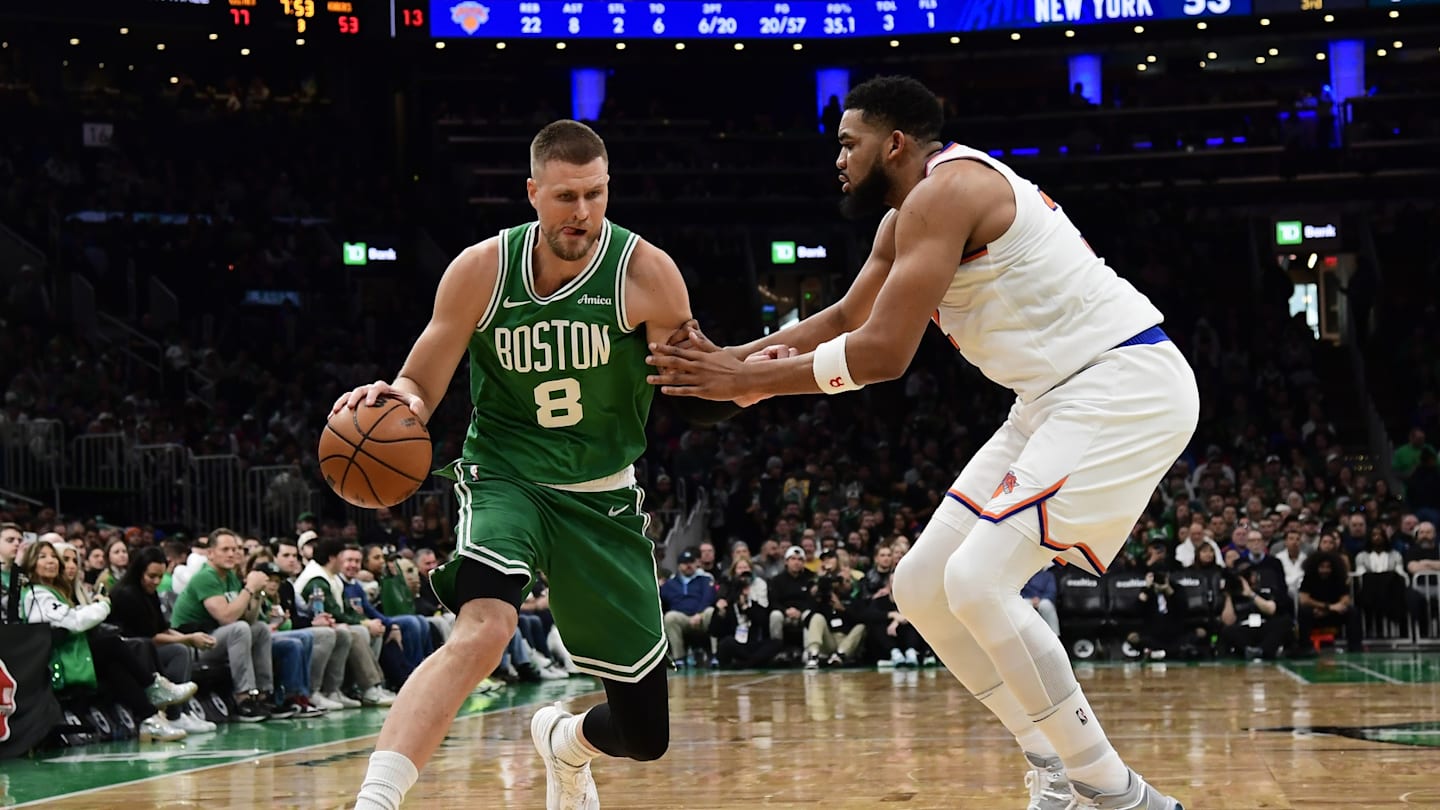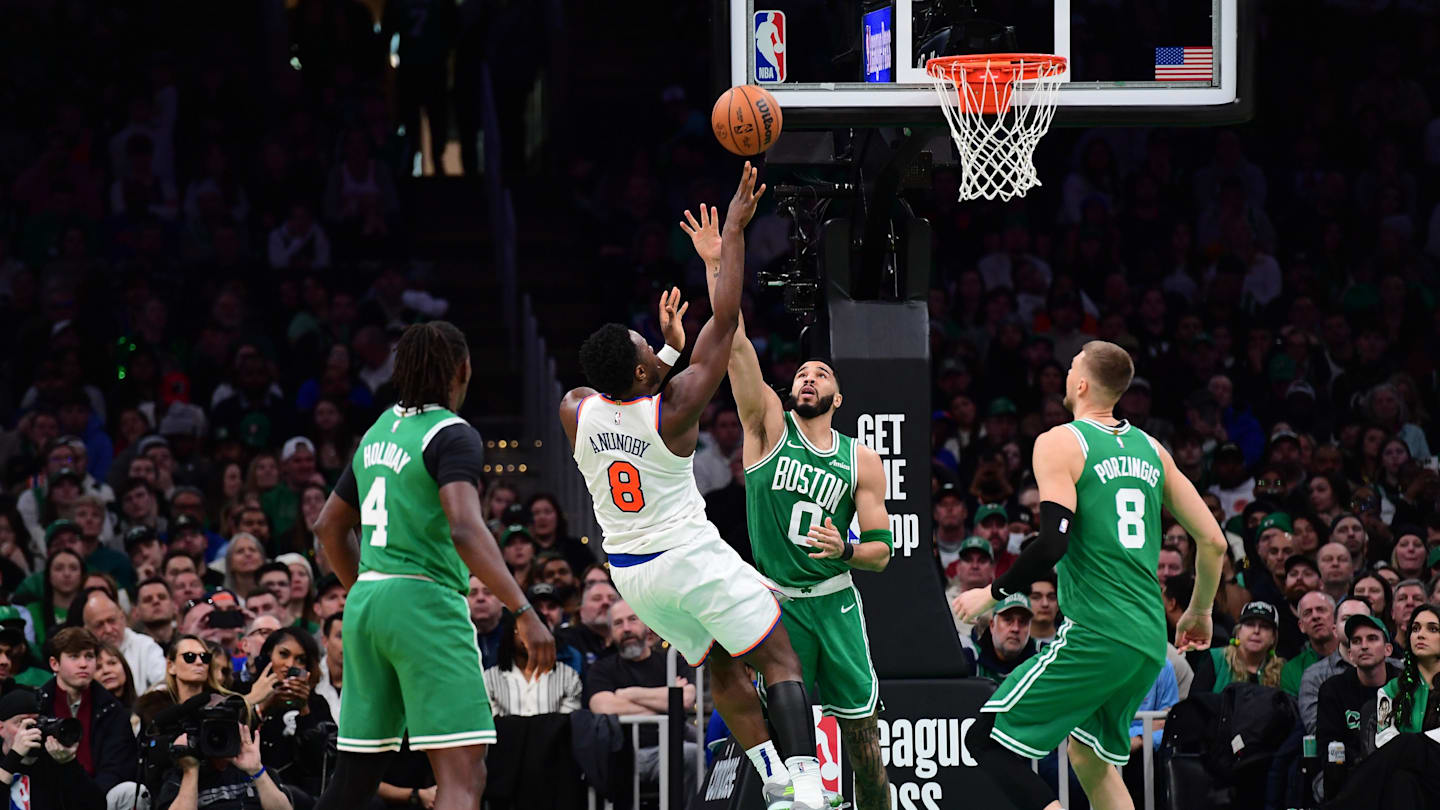How the NBA became a game of business regulations – Marketplace

When Luka Dončić was traded from the Dallas Mavericks to the Lakers, it was a pretty big shock. Dončić, widely considered one of the best young players in the NBA, was expected to stay in Dallas, but the looming cost of an impending $345 million contract extension — plus a web of restrictions on how much teams can pay to keep players — led to his departure.
“Being at that level of salary and investing in him comes with all these penalties in terms of what you can do with your roster,” said Jordan Sargent, who wrote about the financialization of the NBA for The Atlantic.
“Marketplace” host Kai Ryssdal spoke to Sargent about his story. The following is a transcript of their conversation, picking up with how the concept of “moneyball” has affected the NBA.
Jordan Sargent: The NBA is a capped sport. It has a salary cap and a luxury tax and some other aspects that prevent, limit or severely incentivize teams to not spend as much money as they can. And so things can get very complicated, and you don’t need to just know statistical basketball sports terms anymore. You have to understand aspects of the salary cap and aspects of economics in ways that you just didn’t as a casual fan in previous eras of the sport.
Kai Ryssdal: You talk about the collective bargaining agreement, the CBA — the 676-page document — and what that has done to, as you mentioned, salary cap and all that. And it has made draft picks sort of the commodity in the NBA of today. Talk about that a little bit.
Sargent: Yeah. You know, the NBA, like all the major sports, artificially deflates the salaries of rookies as teams pay their best players a lot of money. You know, you’re playing a LeBron James, $50 million or $60 million a year. It becomes very valuable if you can have good players on artificially cheap contracts. You know, you see in a lot of trades these days, five, six draft picks in one trade for one player.
Ryssdal: How did a music and art guy come up with this story?
Sargent: I’ll tell you. I’m a fan of basketball. I listen to a lot of podcasts, read a lot about basketball, and I just noted a shift over the years about how often you were hearing about the CBA and about which team could do what because of this salary cap thing, or they can’t trade this pick. You know, I’m a fan of the Miami Heat. What can the Miami Heat trade? That’s not something I could just tell you off the top of my head.
Ryssdal: You know, it’s so interesting. You said, “what” can they trade instead of “who” can they trade.
Sargent: Exactly, exactly. And it’s because teams don’t really look at it necessarily as “who.” These days, it’s more “what,” meaning what picks do you have, what assets? One of the things that they’ve instituted into their, you know, structure that other sports don’t is this idea of salary-matching — meaning, you know, if you trade a player that makes $10 million and need to get back a player or a group of players that equal that amount of money.
Ryssdal: Is that the rule, really? What a dumb rule.
Sargent: And they actually made it even tighter this year. You know, you start to have these very narrow passage ways for two teams to make a deal, because you have to match all these things up.
Ryssdal: I was going to ask you, just as the ender, whether there’s a way for the league to get out of this place where draft picks have become the commodity. But really, is this a bad thing for the league, and do they need to get out of it?
Sargent: I don’t think that it’s necessarily a bad thing, although there’s a lot of concern right now about something that was instituted recently in the newest CBA that puts even harsher penalties —
Ryssdal: So wait, they’re tying themselves in more knots?
Sargent: 100%, yeah. And, you know, the most shocking trade really, probably in NBA history — which just recently took place when Luka Dončić got traded to the to the Lakers — the reasoning the Mavericks gave was that they didn’t want to give Luka the most expensive contract in the history of the NBA, which he was going to get and was going to be entitled to, because they they were worried about his body breaking down. And being at that level of salary and investing in him comes with all these penalties in terms of what you can do with your roster. Otherwise, your picks get artificially sent down to the bottom of the draft. There’s all these penalties for spending the amount of money that they felt they were gonna have to spend to retain him. I think there’s a lot of uncertainty from the fan, media and team perspective about what it’s gonna mean for building a basketball team and retaining the best players in the sport when you know they’re bringing the hammer down in various ways on teams that spend a lot of money.
There’s a lot happening in the world. Through it all, Marketplace is here for you.
You rely on Marketplace to break down the world’s events and tell you how it affects you in a fact-based, approachable way. We rely on your financial support to keep making that possible.
Your donation today powers the independent journalism that you rely on. For just $5/month, you can help sustain Marketplace so we can keep reporting on the things that matter to you.
Related
NBA: Mark Cuban says he would have asked for more…
Feb 13, 2025; Dallas, Texas, USA; Mark Cuban laughs during the second half of the game between the Dallas Mavericks and Miami Heat at American Airlines
NBA Scout Reveals Why Celtics Can Easily Beats Knicks in…
The Boston Celtics are one of the teams who are expected to be a contender at the end of the season. They are the defending NBA champions, so they feel like the
Nikola Jokić gives peak Nikola Jokić interview with Scott Van…
Nikola Jokić is still rewriting the record books — and treating it like just another day at the office. In a 149-141 overtime win over the Phoenix Suns
Knicks’ Struggles vs. NBA’s Elite Explained
The New York Knicks are one of the best teams in the NBA, but as of late, they have been defined more by their struggles than their triumphs.The Knicks are 0-7











